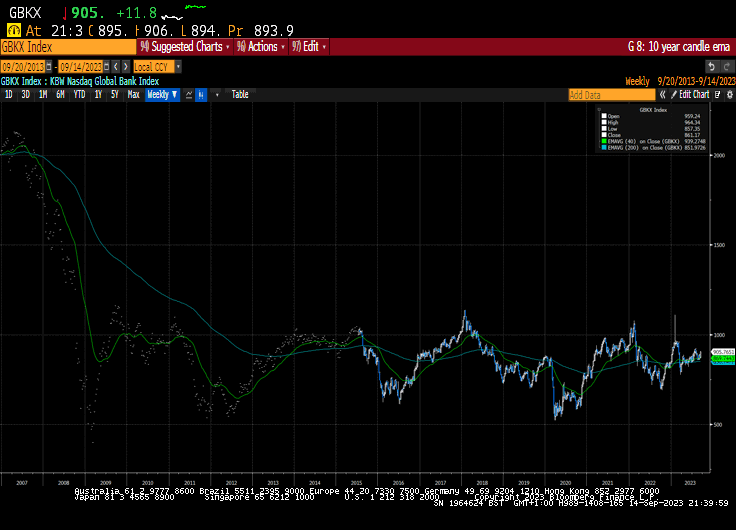The Massive Scale of China's Property Sector
This article from Reuters is filled with wonderful graphics that help to highlight the divergence between private and government-funded property developers. Here is a section:
Eoin Treacy's view -The ballooning debt crisis could delay the prospect of a recovery of both the property market and the broader Chinese economy, in which real estate is a core pillar.
Country Garden, once considered to be financially sound and stable, failed to pay the interest on two of its bonds due in August and narrowly avoided default by making the interest payment hours before a 30-day grace period ended on September 5.
It also failed to pay an interest of $15 million on a bond that was due in September but was granted a 30-day grace period.
Country Garden’s liabilities of 1.54 trillion yuan were the highest among the top-25 real-estate companies in China, and it was among seven to have reported a loss.
China Evergrande finally stopped trading today. That’s more than two years since the initial signs of trouble arose. Meanwhile Country Garden is trending lower with no real evidence a viable rescue package is about to be provided. That’s not good news for foreign investors in the company’s bonds.
This section continues in the Subscriber's Area. Back to top



